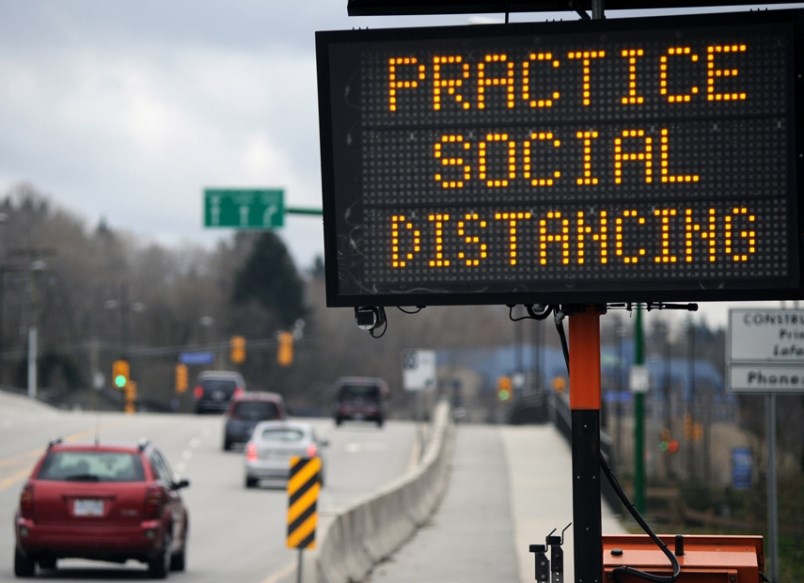What began almost four and a half years ago amidst an air of frightening uncertainty ended so quietly that many people may not have even noticed.
The public health emergency that was declared March 17, 2020, in response to the global COVID-19 pandemic was officially rescinded last Friday, July 26, by B.C.’s chief public health officer, Dr. Bonnie Henry, who issued the original emergency order.
For most people, though, the emergency has long been over. With some notable exceptions — those with “long covid” for example — life returned to “normal” quite some time ago.
The only thing that materially changed with the rescinding of the emergency order was that health care workers no longer had to be vaccinated against the virus to work in the system.
I have to say I had mixed emotions while sitting in the legislature press theatre, listening to Dr. Henry and Health Minister Adrian Dix talk about the experience we all went through. A flood of memories swept over me, a reminder of what an intense experience it was as a journalist who took such a deep dive into covering the pandemic.
It started out as a bewildering exercise in uncertainty, fear and wonderment.
Dr. Henry and Dix briefed reporters seven days a week for many months, reporting out the daily infection numbers, the deaths and the hospitalizations associated with COVID-19.
Gradually, more and more people became obsessed with the data. People would recognize me on the street and shout out “what are the numbers today?”
The early technical background briefings for reporters were unsettling. Various scenarios of what we could expect — how many might die, how many could be hospitalized etc. — were presented and remember, this was well before a vaccine had been developed.
I remember vividly when health officials walked us through how many ventilators B.C. hospitals had access to. This was at a time when some countries were “triaging” which patients could have access to a ventilator to stay alive in intensive care units and the prospect of that happening here was truly frightening.
Our society almost shut down. Streets were almost entirely deserted, and storefronts were shuttered. People worked from home if they still had jobs.
But miraculously, a vaccine was developed and we began to regain our footing and slowly return to normal lives.
For months, I was the only journalist physically present at the legislature as news conferences went virtual and reporters were on the phone. The public interest in the briefings by Dr. Henry and Dix was intense and enormous and we all felt like we were in a fishbowl, being watched by so many who were paying careful attention to every question and every answer.
To this day, I still have strangers come up to me in the legislature expressing gratitude for the coverage, especially in the early days. They often ask about Dr. Henry in very positive terms.
I keep in my legislature office a box filled with my COVID-19 notebooks, diaries of a sort. Fourteen in all, every page is filled with scribbles and notations, charting every day’s statistics and anecdotes. I also keep the hundreds of letters and emails I’ve received over the last four years, expressing thanks or asking for guidance as we went through an unprecedented pandemic.
I’ve been a daily journalist for 40 years, but I think my pandemic coverage was the most important work of my career.
It was a long, strange journey and the rescinding of the emergency order puts a nice bow on it. But for so many of us, it really ended long ago.
Keith Baldrey is chief political reporter for Global BC.



